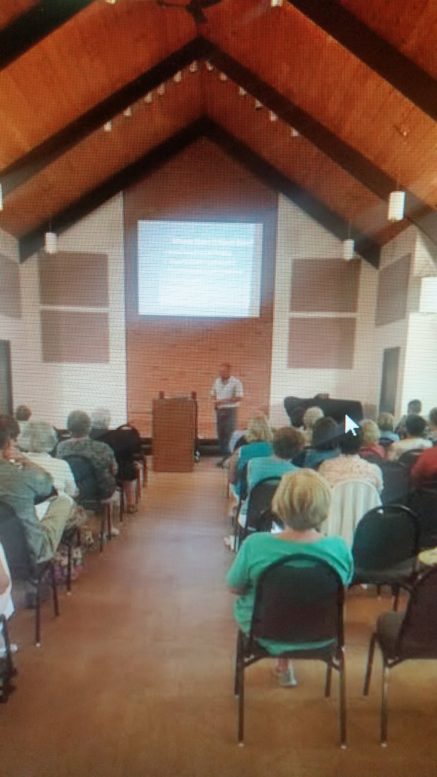(As submitted by Chris Gajewicz, BG Parks naturalist)
On July 30th , the Bowling Green Parks and Recreation Department hosted the 2nd Annual Simpson Gardening Symposium at the Simpson Garden Park in Bowling Green. The symposium is made possible by funding through the Kuebeck Forum on Nature and Environment and the Bowling Green Parks and Recreation Foundation.
This year, speakers for the forum were from local to international locations and a variety of topics were presented to the fifty gardening enthusiasts. The day started off with Isaac Kirwan, Assistant Horticulturist for the Atlanta Botanical Garden in Gainesville, Georgia. Mr. Kirwan spoke to the group about incorporating natural vistas into your home landscape by looking at the plants and environments which are found in your growing area. By utilizing both native plants and plants which grow in your zone, the gardener can create trails, paths, and scenery in their own yard that mimics the surroundings.
Don Schooner from Schooner Farms in Weston, Ohio, spoke on the traditional gardening method known as Hugelkultur. Hugelkultur, German for, “Hill Mound”, has been practiced in Northern Europe for hundreds of years and involves the burying of a fallen tree or log with soil, leaf matter, compost, etc.
The mound is then used for the growing of food crops. As the tree or log inside the mound decays, the nutrients it releases can be used by the surface crop. Hugelkultur mounds can been seen in full operation at Schooner Farms at Route 6 and Otsego Pike in Wood County.
The final speaker for the day was Botanical Explorer, Joseph Simcox. Mr. Simcox, his brother Patrick, and their team of plant collectors, travel the world in search of seeds from food plants that are on the verge of extinction. With most food crops worldwide, the seed stock is limited to very few varieties.
Simcox collects seeds from small farms, deserts, jungles, and anywhere else people grow their own food. The seeds are collected from these familiar, (corn, squash, cucumber, and tomato), food plants, and sometimes unfamiliar, (Dragon Fruit, Nara Melon, Horse Lentils, and Japanese Maize). Simcox said that seeds from many of these food crops plants have been in the same family for, in some cases, hundreds of years and the family each year continue to propagate them. Many of our immigrant ancestors coming to the new world brought the seed stock for familiar food crops with them and many people still have memories of family members saving seed annually from their crop for use the following year.
Thanks to this year’s sponsors:
– Kuebeck Forum on Nature and Environment
= Bowling Green Parks and Recreation Foundation
– Stimmel’s Market and Bakery
= Grounds for Thought Coffee Shop, Roaster, and Books
For more information about this year’s speakers, please check out their websites below:
– http://atlantabg.org/
– http://www.schoonerberries.com/\
– http://explorewithjoseph.com/

